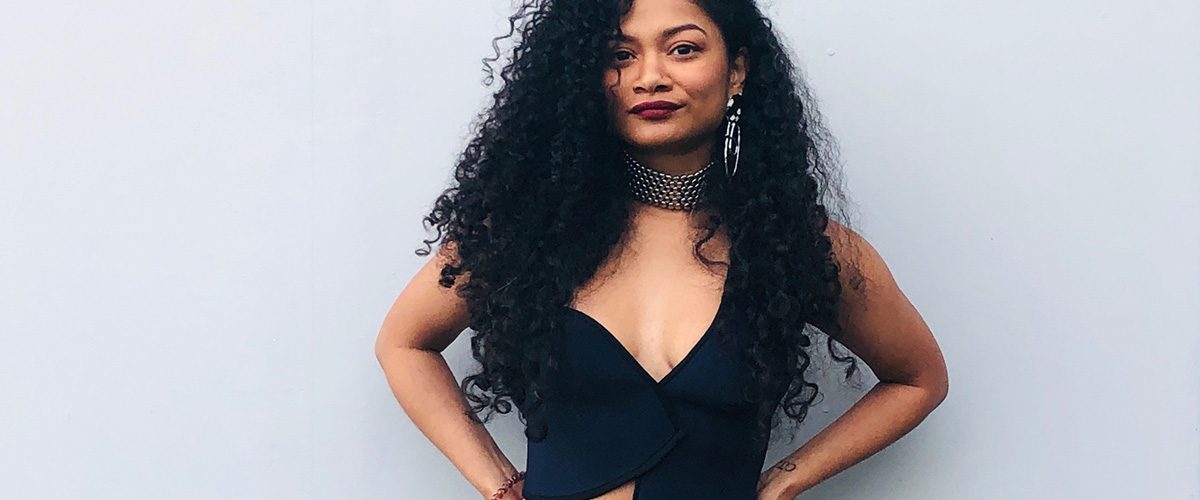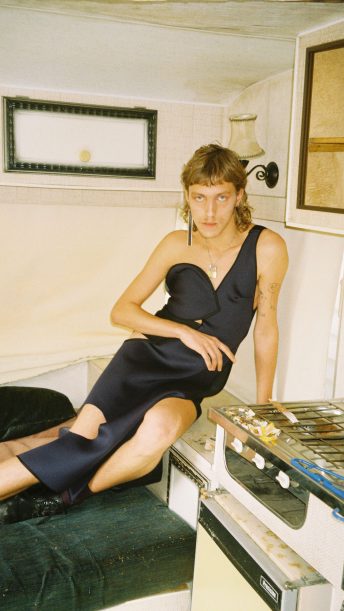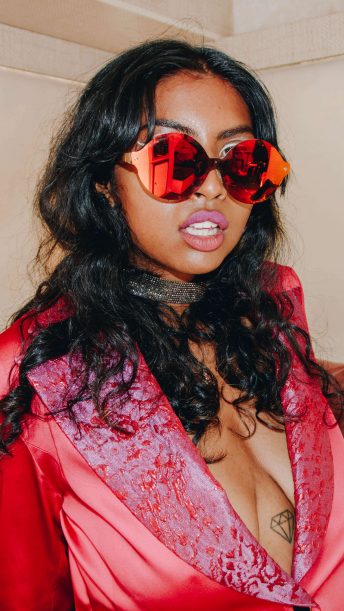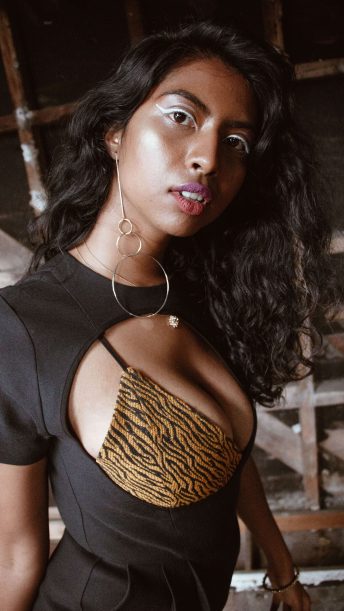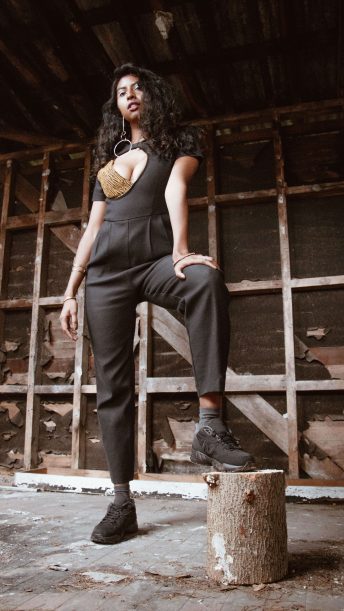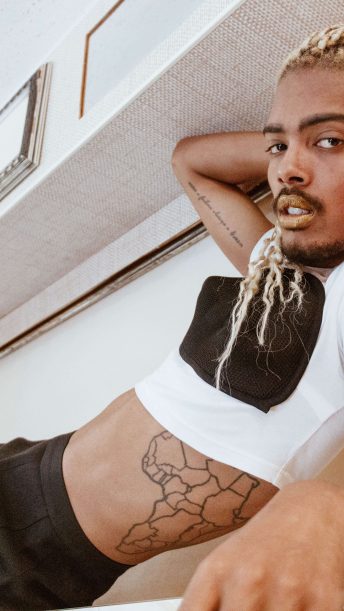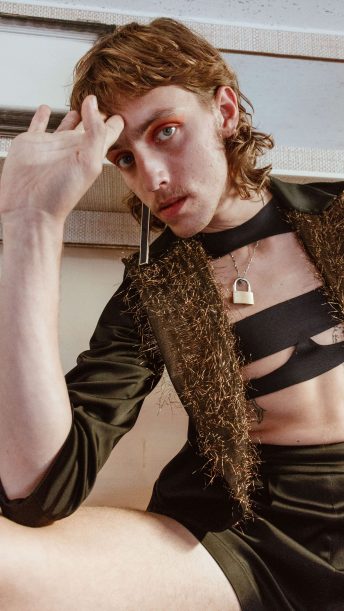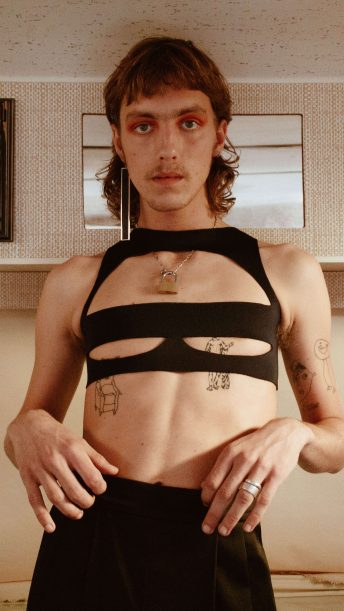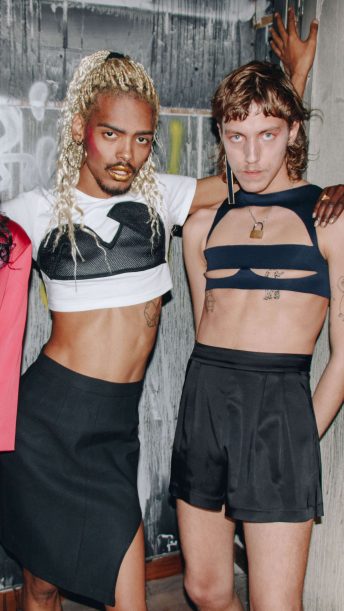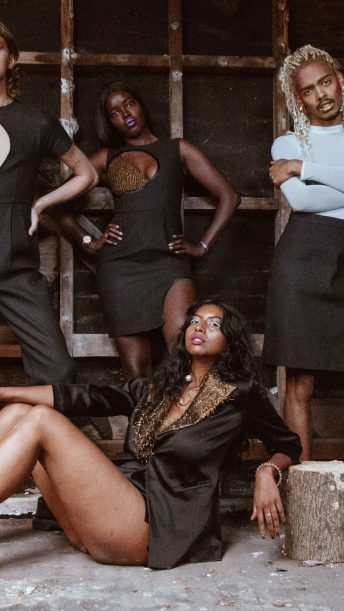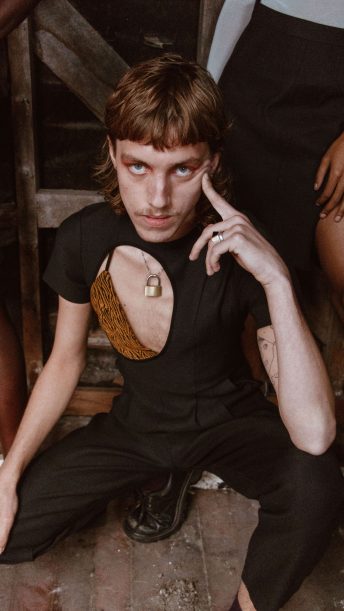Natasha Ovely established Starving Artists Fund (SAF) in 2018, the same year the label debuted at New Zealand Fashion Week (NZFW). The gender-neutral brand celebrates the freedom of non-binary perspectives, encouraging inclusivity and open-mindedness.
We spoke to Ovely about inclusivity, her sustainable approach to design and slow fashion and what we can expect from her upcoming solo NZFW show.
Congratulations on the announcement you’ll be showing at NZFW19! Can you share with us any information on what we can expect from your show?
Thank you! It’s a big milestone for us to have our first solo show at NZFW. Our show is going to be a fearless representation of our brand values. The aim is to simultaneously challenge and interact with our audience.
NZFW19 is focusing on supporting sustainability and inclusivity. How do you think the local fashion industry can move towards embracing and encouraging slow fashion?
I think the conversation around slow fashion needs to get deeper than simply boiling it down to a less wasteful method of making. There are obvious challenges that come with slow fashion from both a consumer and brand perspective — we are used to things being readily and cheaply available.
There is also the higher price point that comes with smaller production quantities and local production fees which is not affordable to all demographics — this needs to be acknowledged. I think that wealthier consumers can lead the movement until slow fashion starts to become more of a norm. Morals don’t come cheap and it is a great way to exercise ethical spending from a position of privilege.
Tell us the story behind the name Starving Artists Fund.
When I moved into my first apartment in Berlin in 2014, I labelled a coin jar ‘Starving Artists Fund’. I always had a feeling that name would represent something I built one day.
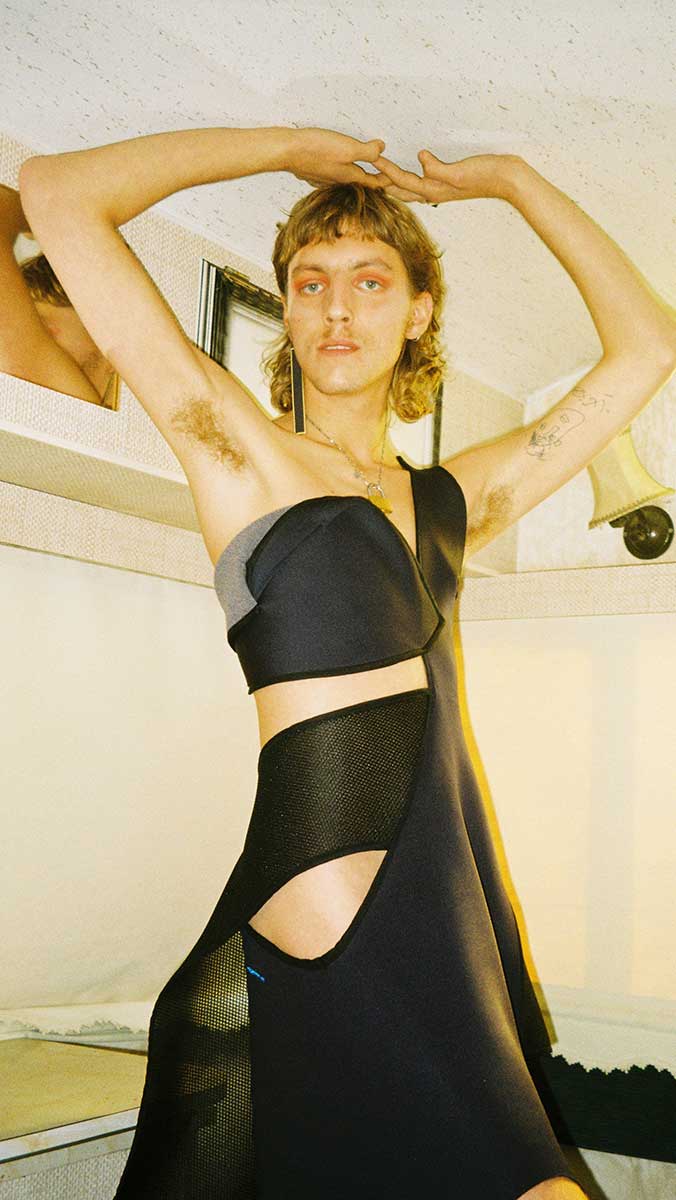
SAF celebrates “individuality, body positivity, diversity, and non-binary perspectives”. How do you, as a designer, help bring awareness to these issues?
The themes are embedded in our brand’s DNA by simply setting it as our norm. I think every designer aligns with a certain socio/political perspective whether they intend to or not. I see having my own brand as an opportunity to create a safe and celebratory space to nurture these values.
How do you want people to feel when wearing your clothes?
Formidable.
You grew up travelling the world. How do you think this influenced your design aesthetic?
I strongly embrace my position as a ‘cultural outsider’ and apply it to my design aesthetic. I think there’s a beauty in mixed signals and pieces that don’t fit into one particular context. I try to create reactionary collections that respond to our times and refute expectations of those who think people of colour are automatically expected to make work that heavily references/stereotypes their culture (an expectation that is rarely applied to designers who do not come from minority cultures).
What’s been your career highlight?
We recently ran a post on Instagram reaching out to our followers to tell us why they’d like to walk in our upcoming show at NZFW. I was deeply moved by the responses we got where people opened up about their struggles with self-image, notions of beauty, masculinity and looked to SAF as the platform to prove themselves. Their bravery made me feel like I’m doing something right and slowing building the brand community I’ve always aspired to.
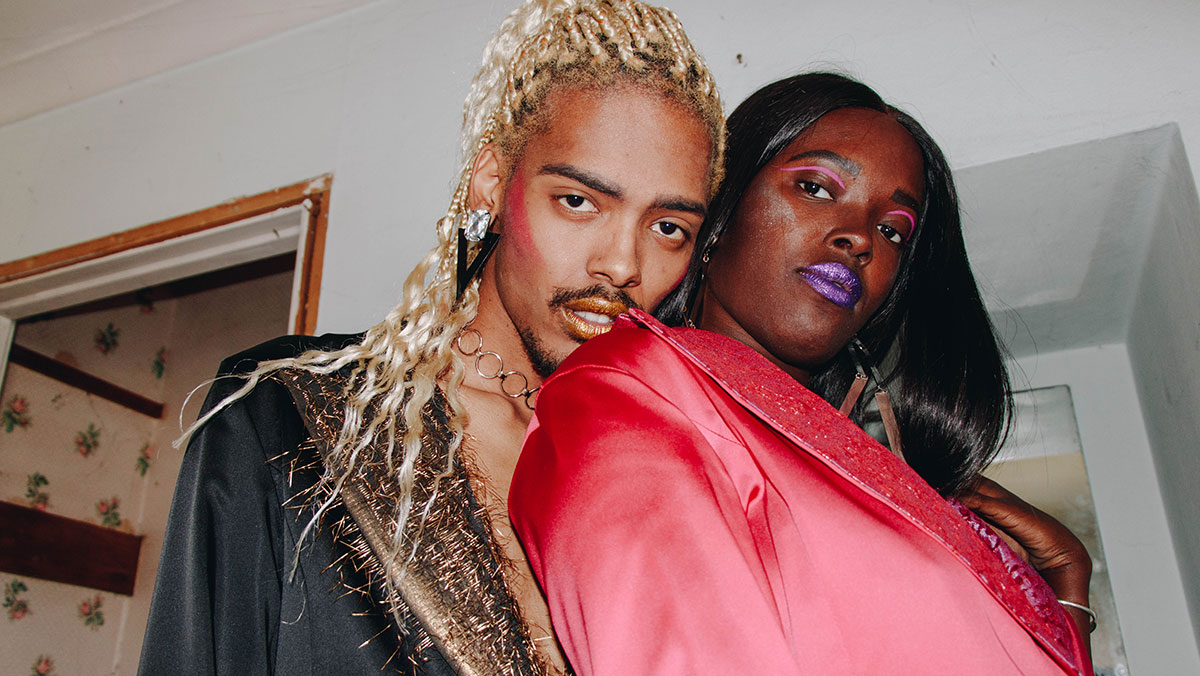
Do you have any design heroes?
Several! I’m partial to those who deal with cultural displacement and nurture community and dialogue — Kerby Jean-Raymond of Pyer Moss, A Sai Ta of Asai, Mowalola Ogunlesi, Matty Bovan, Richard Malone and Charlotte Knowles are my current design titans.
What’s your best advice for someone wanting to follow a similar career path?
Identify your brand values and stay vigilantly true to them. Ask yourself if you’re driven by commercial success or originality in design — every decision you make will be informed by this.
Be prepared for financial instability and have a plan in place to tackle this. Do not expect things to be handed to you, be proactive, ask questions, reach out to your design heroes — they started in the same position as you once and are likely to give you honest insights about the industry. Talk to fellow designers honestly about money, sales, pricing, production and other issues. There is no sense in secrecy; collaboration and camaraderie trump competition.
Play the long game. Know that every designer reaches points in their career where things seem overwhelmingly challenging, push through and your perseverance will build your strength. There is no standard design process. Be comfortable in the way that you work and value it.
What don’t you leave the house without?
My notebook and several pens. Writing daily helps me keep my clarity.
See more images of the ‘Camel Light‘ capsule collection in the gallery above.
Stay tuned to The Last Fashion Bible for more information on how to win tickets to the Starving Artists Fund show at NZFW.


